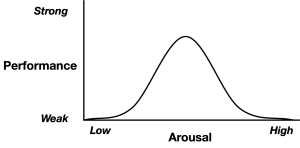Things always seem to come in fits and spurts. It may be relatively quiet (that is, lots to do but can schedule as suits) and then boom. What’s coming up are a busy a few weeks, and I thought I’d share. Because, of course, some may be relevant to you.
Next week isn’t. Relevant to you, that is. I’ll be off for a couple of days guiding a client strategy. I was just supposed to do a keynote, but…when I heard it was a strategy session I offered to help facilitate it. That said, I do think we’ve created a good plan. Fingers crossed.
The week after that is DevLearn, arguably my favorite F2F L&D conference. I’ll be speaking at 3PM on Thursday, 7 November on achieving impact with your interventions. Then I’ll be signing books at 9:30 AM on Friday the 8th near the conference bookstore. I’m coming in for the full thing, arriving Tuesday and leaving Saturday, but it won’t be my usual visit. I’ll be around, saying hi to old friends and meeting new, of course. I’ll also be introducing a colleague new to L&D around.
Then, and this is exciting, I’ll be spending the subsequent week (11-15 November) either participating in or presenting in sessions for our Learning Science conference. I’m doing a couple (informal/social learning, and making learning ‘stick’) of our curated sessions on my own. Then I’m doing one on myths with my LDA co-director, Matt Richter. The rest of the conference, as mentioned is great folks and important topics. Content’s up front, and no conflicting sessions when we discuss the topics live.
I’ll have a week after that to recover, and then of course Thanksgiving week. I hope to see you live around LV, or online the subsequent week. I’ll try to keep posting here once a week, but things may be a wee bit more random what with a busy few weeks until mid-November. By December, somewhat back to normal except of course the holidays. In the meantime, as I say to my family: be good, stay safe, and have fun!



